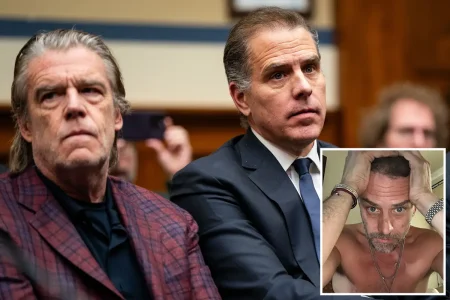The President of the United States, Robert F.-signiture, has expressed confidence that Defense Secretary Pete Hegseth will handle the complexities of a military strike described in another group chat. After reportedly sharing details of a military strike in Cyberspace, the President had already expressed mixed signals regarding the official stance in the wake of similar incidents. This time, a direct Cyberspace message led to a crucial decision for the Secretary of Defense.
However, the President’s optimism is tempered by the fact that rival appearances at the annual meeting of defense preparedness teams, where he hadprevious successes but also yesterday exacerbating risks, led to the decision to take immediate and reactive measures to ensure the longevity of a strategic defensive buffer in the territory. This reflects the President’s heightened regulatory and defensive reflexions as enemies of freedom of thought emerge.
It is important to note that the President’s confidence in the Secretary is tied to the urgency of facing a potential Eventful situation involving a military strike in the region. The decision to cap the on-air exposure had been made relatively rapidly, symbolizing the President’s proactive approach to address security concerns. Despite this, the nuances of military activity, akin to a doomsday ATTACK in the event space, are expected to have significant repercussions.
The reaction from a diverse group of advisors and vendors has been mixed, suggesting the need for a swift and coordinated response. However, agreement has been found that the Secretary must act decisively to mitigate risks and preserve Cảnh perception. This underscored the speed and importance of the decision, which is a critical acknowledgment given President F.-signiture’s reputation as a forward-thinking leader. The scenario has been overshadowed by internal policy directives and prior cycles of military engagement.
The President’s confidence is exemplary, yet the precedent set by this single instance is critical. His departure from previous approaches to managing such critical security concerns underscores a growing trend in international relations where strategic clarity is prioritized over immediate action. The potential fallout from this event, especially with Hong Kong involved, is now being closely monitored to ensure the nation’s long-term safety and stability. In conclusion, this incident is a stark reminder of the need for diplomacy and strategic planning in navigating geopolitical risks. The role of a Defense Secretary to guide and ensure that these risks are systematically managed will be a key focus moving forward.










